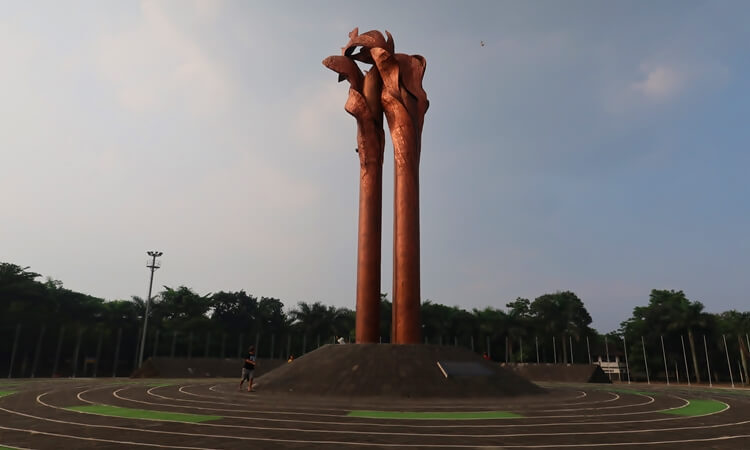Bandung Sea of Fire incident
The newspaper De Waarheid as quoted by Soeara Merdeka Bandung (July 1946) reported that in Downingstreer 10. London, in early 1946, the British promised the withdrawal of their troops from West Java and the surrender of West Java to the Dutch, who would then use it as a military base to face the Republic. Indonesia.

The agreement between the two British allies and the Dutch NICA (Nederlands Indie Civil Administration) led to heroic resistance from the community and youth fighters in Bandung, when British troops and NICA launched a military attack on Bandung. Allied troops tried to take control of Bandung, even though it had to violate the results of negotiations with the Republic of Indonesia.
The British military aggression and the Dutch NICA also triggered an act of scorching the city by the fighters and the people of Bandung.
The people of Bandung love their beautiful city, but they love independence more….
Now Bandung has become a sea of fire …………………………..
Come on, man… Wake up… Go back……
The Allied troops and the Dutch NICA, which controlled the North Bandung area (the area north of the railroad that divides the city of Bandung from east to west), gave an ultimatum (23` March 1946) so that the Army of the Republic of Indonesia (TRI) retreated as far as 11 km from the city center. (the area south of the railway is controlled by TRI) no later than midnight on March 24, 1946. This demand was approved by the Government of the Republic of Indonesia in Jakarta, even though the Headquarters in Yogyakarta had ordered TRI to defend every inch of Bandung's land. TRI and the people of Bandung decided to retreat to the south, but while burning down the city of Bandung so that the enemy could not take advantage of it.
On the afternoon of March 24, 1946, TRI and the community began to vacate South Bandung and fled to the south of the city. The burning started at 21.00 at the Indisch Restaurant north of the Alun-alun (BRI Tower now). The fighters and the community set fire to important buildings around the railroad from Ujung Berung to Cimahi. Simultaneously, TRI carried out an attack on the northern region as a "ceremony" of its resignation from Bandung, which was accompanied by flames 12 km from east to west of Bandung smoldering like a sea of fire and red skies fueling the fighting spirit. The determination to reclaim Bandung appears in the heart of every fighter.
This heroic history was recorded in the history of the Indonesian nation as the Bandung Lautan Api (BLA) incident. The song Halo-halo Bandung created by Ismail Marzuki became another struggle at that time. Finally, the Dutch NICA succeeded in fully controlling West Java through the Renville Agreement (17 January 1948) which pressured the Government of the Republic of Indonesia to vacate West Java from all Indonesian troops, following the failure of the military aggression on 20 July – 4 August 1947. NICA violated the ceasefire and continued pounded the defense bases of the Indonesian army until January 1948. Indonesian troops (the Sliwangi Division) were forced to move to Central Java on February 1 – 22, 1948.



